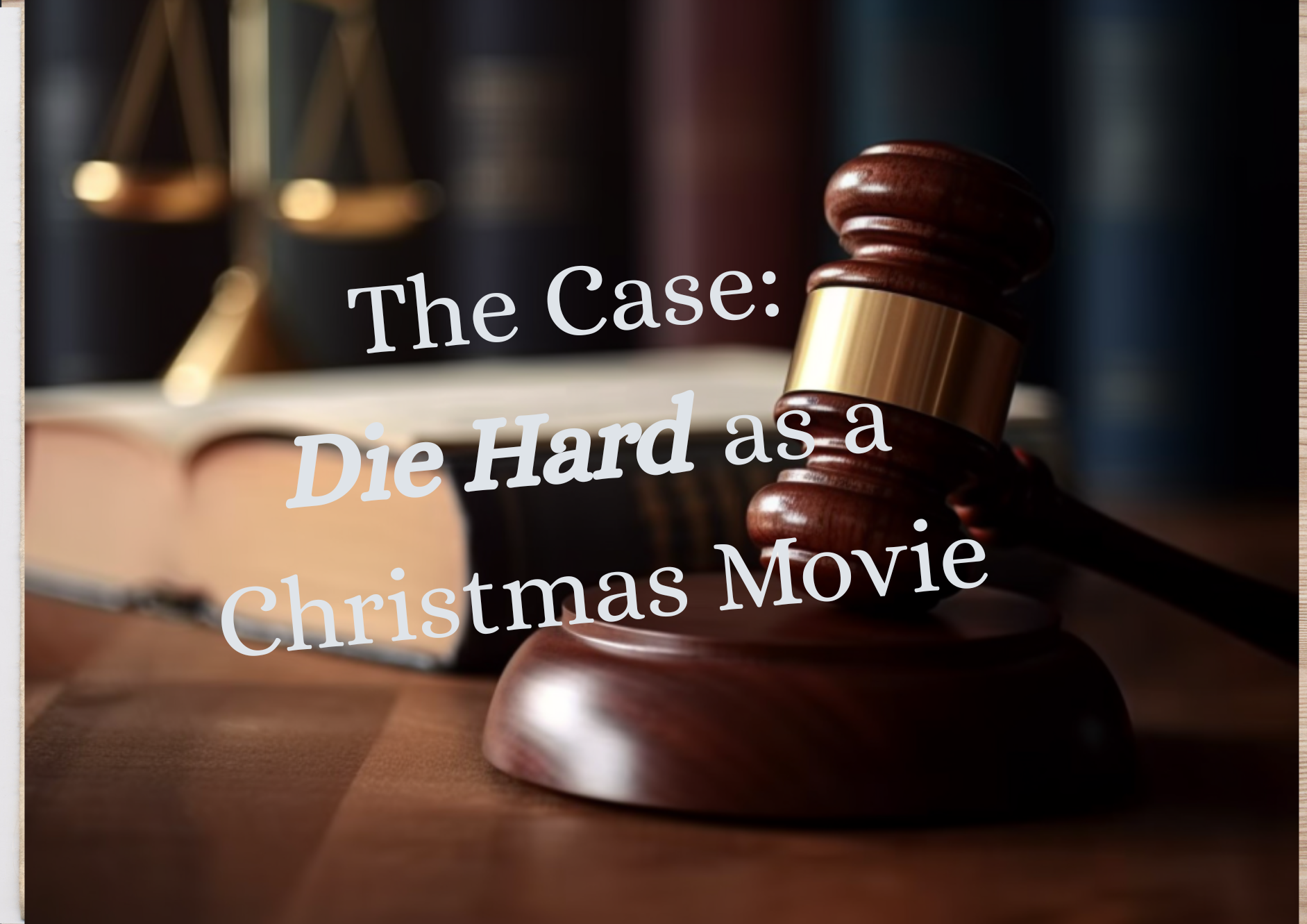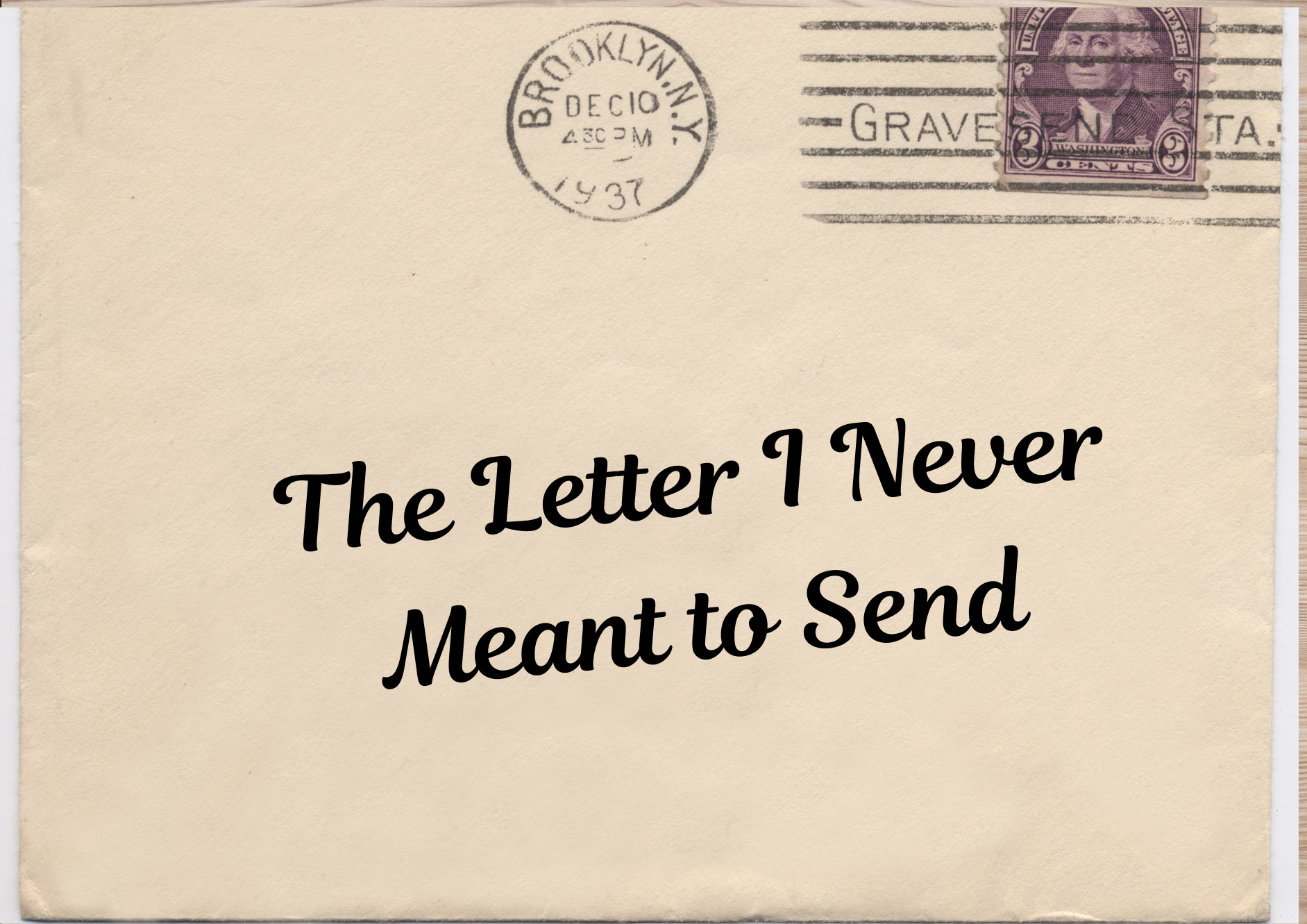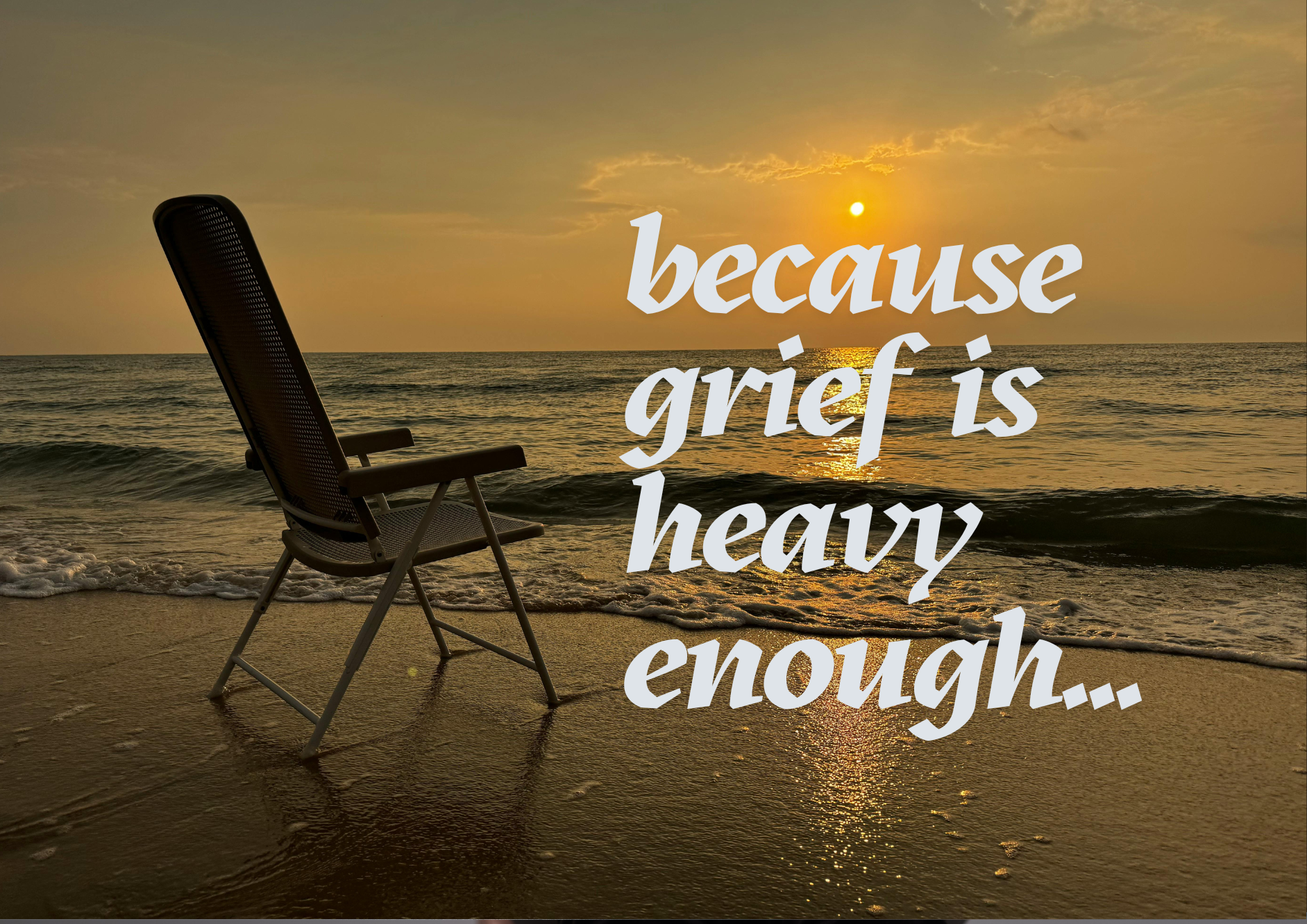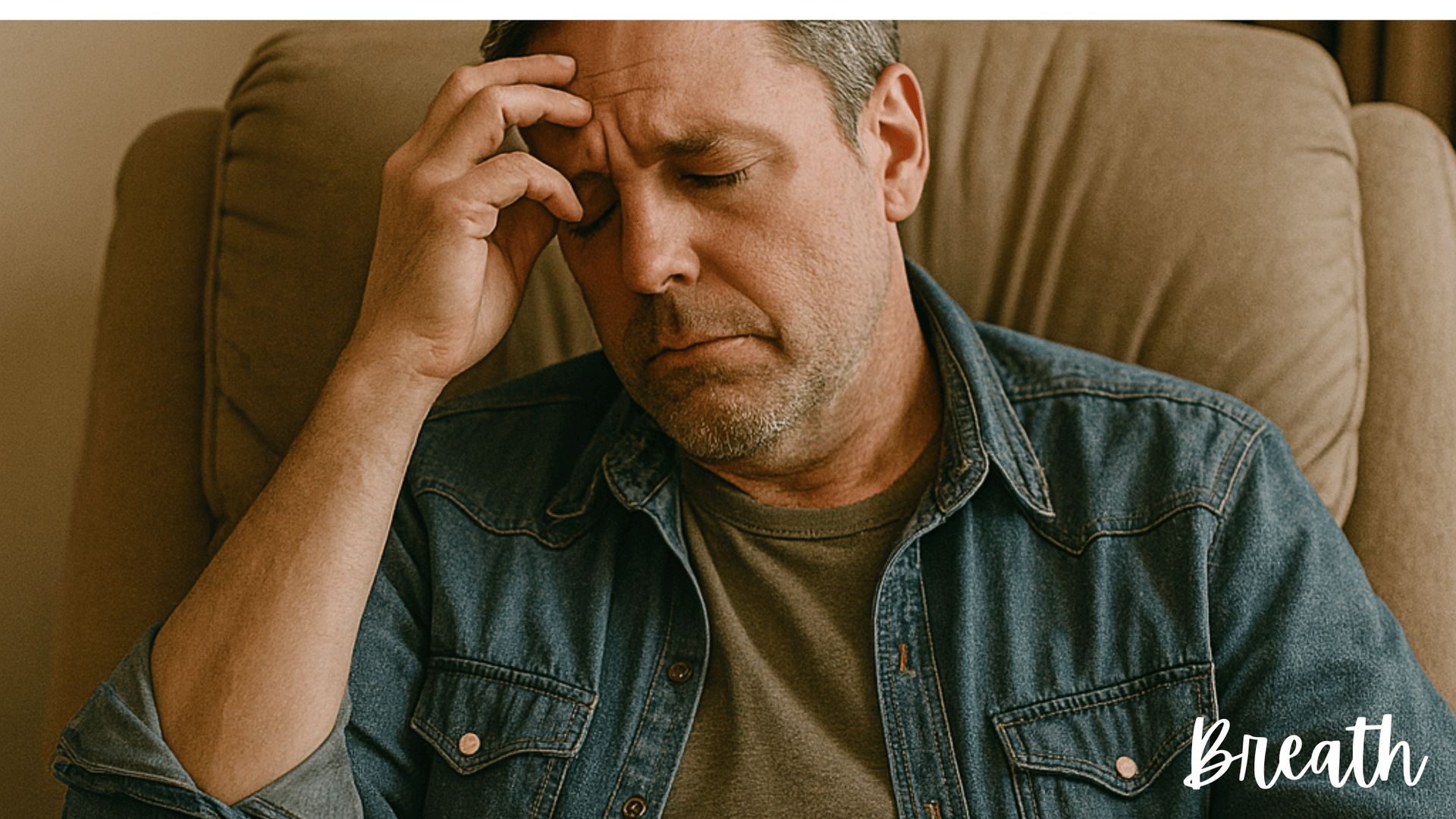When We're Just Tired
Breathe Peace. Grace Hasn’t Let Go.
Not because he speaks in lofty words or quotes Scripture from memory.
Not because he’s got his life together. (He’d be the first to laugh at that idea.)
But because he shows up. He shows up when people are hurting. He shows up when something needs fixing or someone needs lifting. He shows up with hugs, silence, stories—whatever the moment calls for.
He serves without fanfare. He listens without judgment. He gives without needing to be noticed.
And lately, he’s tired. Bone-tired. Soul-weary. The kind of tired that doesn’t go away with sleep.
The other day, he read something I wrote about Old Fashioneds. I wanted him to read it—because he's in recovery, and I trusted him enough to be totally honest with me. He was. And that opened a deeper conversation.
He told me he’s looking for something. A rhythm. A ritual. A way to keep going when everything feels heavy.
He didn’t call it a prayer. He didn’t call it church. He just said he needed something. A breath. A pause. A bit of meaning to lean on.
I think a lot of us are looking for that.
Some people find it in Scripture or a sanctuary. Others find it in walking their dog, or washing dishes, or sitting on the porch and watching the world not ask anything of them for a while.
We don’t always need big answers. Sometimes we just need one quiet moment that doesn’t ask anything of us—except to be exactly as we are.
My friend isn’t big on organized religion—too many walls, too much noise, too many people talking about God while forgetting to be kind.
And yet, the way he lives—his compassion, his presence, his stubborn hope—tells me his faith is real. Maybe more real than most sermons.
So, today, this post is for him. And maybe for you, too.
If you're feeling tired. If your body is worn and your soul feels bruised.
If your faith is hanging by a thread. If you’re not sure what you believe, but you still want to believe in something.
I see this kind of weariness everywhere lately.
My manager is working fifteen-hour days, pushing himself beyond what feels human, trying to keep everything from falling apart. The weight she carries isn’t just in the hours—it’s in the constant pressure, the never-ending to-do list, the silent worry no one sees.
I think of a woman I met who stayed by her husband’s side in the ICU for more than two weeks. There were no visiting hour limits for her—she hardly ever left. Day after day, night after night, her presence was the only comfort he had in a place where hope felt fragile and time slowed to a crawl.
Others are grieving, burned out, holding it together on the outside while falling apart on the inside. And some can’t even name what’s wrong. They just know that everything feels heavier than it used to.
This isn’t just the tired that comes from a long day or a short night of sleep. It’s the exhaustion that lives in your bones, in your spirit. It’s the kind of tired that accumulates over time—from caregiving, from chronic stress, from holding in emotions, from showing up for others while neglecting yourself. It doesn’t clock out when your shift ends. It follows you home. It wakes up with you.
A nap won’t fix it. A weekend off won’t touch it. Even sleep can feel like it doesn’t reach the place that hurts. Because this kind of tired isn’t just physical—it’s emotional, mental, even spiritual. It's weariness that comes from meaningful things: loving people through crisis, holding others’ pain, carrying grief, trying to be strong for too long.
What helps isn’t always a fix. Sometimes what heals is simply being seen. It’s someone looking at you with quiet understanding and saying, “I know you’re carrying a lot.” It’s being allowed to stop pretending you’re okay. Sometimes the most sacred thing isn’t a solution—it’s someone who stays. Someone who doesn’t try to fix you, just chooses to sit beside you and offer grace and peace.
Sometimes the holiest thing we can do is admit we’re tired. Not fix it.
Not push through. Not pretend we’re fine. Just tell the truth.
That’s what my friend did the night we talked. And thankfully, I didn’t rush to fill the silence. I just listened. And as I ended the call, I was reminded how much we all need room to be human.
Sometimes faith doesn’t look like certainty. Sometimes it looks like showing up anyway. Sometimes it looks like a car ride for someone who needs to get to the doctor. Sometimes it looks like silence. Sometimes it looks like asking for a breath of meaning when you’re too worn out to pray.
Sometimes, we’re all just tired. I know that I am.
If that’s where you are, I hope these words help you breathe.
I hope they remind you that even your weariness is seen.
I hope you remember that your doubt is not disqualifying.
And that silence and pauses are part of the prayer.
May you find rest in unexpected places.
And may the sacred sneak up on you— right where you are.
Sometimes the altar isn’t built of stone.
No candles. No hymns.
Just this moment.
Just this breath.
Just this—your Unlikely Altar.

Every December, the argument returns like a familiar carol sung a little too loud. Is Die Hard a Christmas movie? Some folks hold tight to their cocoa mugs and say, “ No way. ” Others smile the way you smile when the argument is already settled in your heart. I’ve come to believe the debate survives because it isn’t really about explosions or one-liners. It’s about where Christmas actually finds us. When I was preaching, Christmas was rarely quiet. Four or five services on Christmas Eve. Programs to assemble. Bulletins to proof. Candles to count. Microphones to fix. Holy night by way of logistics. I loved the people. I believed the message. But if I’m honest, there were years when I was just muscling through it all, trying to sound joyful while quietly counting the hours until December 26th. Not because I didn’t care. Because I was tired. Christmas had become something I delivered more than something I received. And then, late. After the sanctuaries were dark. After the last “ Merry Christmas ” was said. After the robe was hung back up. Die Hard would sometimes flicker onto the screen. No sermon. No sanctuary. Just a tired preacher on a couch watching a tired man crawl through air ducts, barefoot, scraped up, and refusing to quit. That’s when Christmas found me. First, the setting. Christmas Eve. Office party. Tinsel, teddy bears, and awkward small talk. The soundtrack includes sleigh bells and gunfire, which feels honest if we’re being real about the season. Love arrives on a plane. Redemption arrives barefoot. Second, the plot. A man flies across the country to fix a marriage. He brings a gun, sure, but mostly he brings humility. He learns to say the right name. He learns to ask for help. He learns that reconciliation costs something. If that’s not Advent, I’m not sure what is. Third, the theology of it all. Christmas, at its heart, insists that hope shows up where it shouldn’t. In a stable. In a cubicle farm. In a high-rise named Nakatomi. Grace breaks in during a holiday party and doesn’t bother to RSVP. This is why Die Hard feels like an altar to me. Not a cathedral altar with candles and quiet. An Unlikely Altar . The kind you stumble into while holding snacks. The kind that surprises you with meaning between explosions and one-liners. Because the movie isn’t really about violence. It’s about stubborn love. It’s about a man who keeps crawling through ducts because quitting would be easier, but it would be less faithful. It’s about choosing a relationship over pride. It’s about saying, “ I was wrong, ” and meaning it, even when the building is on fire. And yes, there is a Christmas miracle. Snow falls in Los Angeles. Paper snow, but still. A family is restored. A villain falls. A limo driver gets a tip. The season delivers what it always promises: not perfection, but presence. So, light the tree. Pour something festive. Put Die Hard on the screen and let it preach. Let it remind you that Christmas shows up loud and sideways, that love sometimes limps, and that grace can absolutely wear a tank top. An Unlikely Altar. A Holy night. Yippee-ki-yay, AMEN! 🎄💥

I don’t know your name, but I know this moment. You opened the conversation. You hesitated. And then life stepped in. You know, that happens more often than you might think. I’ve sat at kitchen tables where someone said, “ We meant to do this .” I’ve stood beside families who whispered, “ They kept saying they’d get to it. ” I’ve watched love carry grief—and then watched grief carry bills, decisions, and questions that felt impossibly unfair. This isn’t a letter written to rush you. It’s written because I’ve seen what happens when no one ever circles back. I once stood with a family the morning after a death. The house was quiet in that way only grief can make it. Coffee untouched. Phones buzzing with questions no one wanted to answer yet. Someone finally asked, “ Is there anything in place? ” But there wasn’t What followed wasn’t just sadness. It was scrambling. Credit cards. Awkward conversations. A weight added to a moment already heavy with love and loss. But there are those times when I have seen another scene. I’ve been with families where one small thing was already taken care of. Not everything. Just enough. And in those rooms, grief was still heavy—after all, love always makes it heavy—but it wasn’t tangled up with panic or uncertainty. That’s why this matters to me. Not because I sell final expense insurance. But because I’ve watched what happens when love prepares the way—and when it doesn’t get the chance. If you paused because the conversation felt heavy, I understand. If you paused because life got loud, I understand that, too. If you paused because you told yourself, “ I’ll come back to this ,” I’ve heard that sentence more times than I can count. This isn’t about fear. It’s about care. It’s about peace. It’s about love. Final expense planning isn’t about planning your death. It’s about caring for the people who will still be here when you’re gone. It’s about making sure grief doesn’t have to carry more than it already will. Love will always make grief heavy. A plan simply keeps other burdens from piling on. If you never come back to this conversation, I hope you still hear the heart behind it. And if someday you do return, I hope you know the door was always open. Because this work—this quiet, unseen preparation—is one of the last ways love shows up. And that is no small gift.

The service is over. The thank-you notes have been started. The flowers are starting to fade. Most of the company has travelled home. And the casseroles are stacked in mismatched containers, names written on blue tape. This is what the day after looks like. It’s the morning when the house is too quiet. When the adrenaline wears off. When everyone else has returned to their lives, and you are left standing in the middle of a room, wondering what happens next. Because grief is heavy enough. Not only is the day after quiet, but it is also the kind of silence that invites questions. And those questions can overwhelm you. Who do we call now? What needs to be paid? Is there insurance? Where is the paperwork? What did they want? These questions don’t come because people are being practical. They come because love is trying to keep going in the middle of loss. And because grief is heavy enough, those questions can feel overwhelming. I’ve spent years standing with families in these moments. As a pastor. As a celebrant. As someone who knows that the hardest parts often come after the service ends. I’ve seen families gathered around kitchen tables, coffee gone cold, paperwork spread out in quiet confusion. I’ve also seen something else. I’ve seen what happens when one small thing is already taken care of. Not everything. Just one thing. A simple plan. A clear answer. A quiet assurance that one question does not have to be asked today. Because grief is heavy enough without financial questions layered on top of it. When that piece is in place, something shifts in the room. Shoulders soften. Breathing slows. People are allowed to be exactly what they are in that moment— sad, tired, grieving, human. Final expense planning doesn’t take away grief. Nothing does. But it can take away one weight that doesn’t belong there. Because grief is heavy enough on its own. Planning ahead is not about paperwork or policies. It’s about peace. It’s about leaving behind one less burden for the people you love. It’s about making sure the day after holds space for tears instead of tension. If you’ve ever thought, I should probably take care of this someday, you’re not being morbid. You’re being loving. Because grief is heavy enough. Love will always make it heavy. Planning ahead just keeps other burdens from piling on — so families can grieve without also having to guess. And that is no small gift. If you’d like to talk about what planning ahead could look like for your family—without pressure and at your pace—I’m always here for that conversation. Breathe peace. Marty

